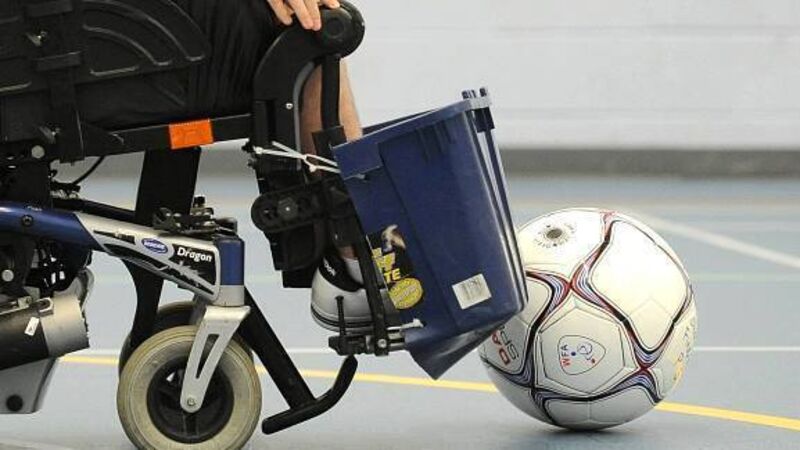Ireland turning up the power in search of Nations Cup glory

There’s an international tournament kicking off today in Ireland and, best of all, we’re in it. The European Powerchair Football Association’s Nations Cup takes place this week at the UL Arena, Limerick. Six European nations will compete in this tournament with England, France, Switzerland, Belgium and Denmark joining Ireland in the inaugural event. Adding bite to the occasion is that the tournament is also a qualifier for next year’s FIPFA World Cup.
Those who do not know powerchair football are advised to experience the fast-paced, high-intensity game. Like most sports, it is a simple game — two teams, two goals, two halves, one winner. It’s played indoors, usually on a standard sized basketball court. Players can be male or female and play in teams of four, trying to outscore the opposition over a 40-minute game.














